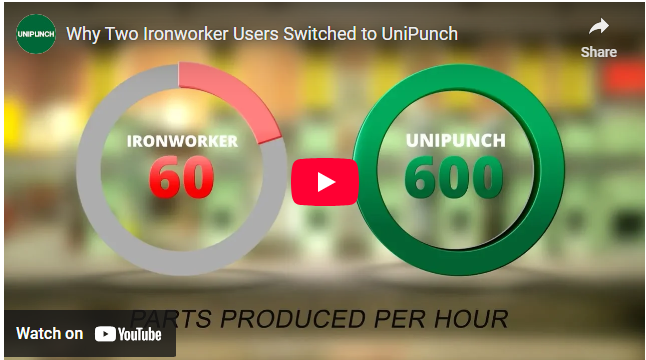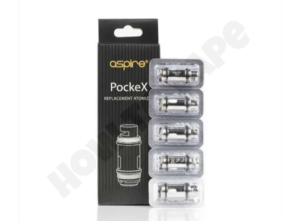How Do You Choose the Best Ironworker Hole Punch?

When you’re tackling construction, metalworking, or industrial projects, one tool you can’t overlook is the ironworker hole punch. These machines serve as vital pieces of equipment for punching holes in various materials, such as steel, aluminum, and even some softer metals. But choosing the best tool isn’t as simple as picking up any random model from the shelf. There are many factors to consider to ensure you get a punch that not only performs well but also lasts for years. In this blog, we’ll walk you through the essential aspects to look for when choosing the best ironworker hole punch for your needs.
What is an Ironworker Hole Punch?
This tool helps workers punch clean, precise holes into metals. Industries like construction, steel fabrication, and manufacturing commonly use it. An ironworker hole punch is a key component of an ironworker machine—a versatile machine that also shears, notches, and bends metal.
While the entire machine performs multiple functions, the hole punch specifically punches holes in different sizes and shapes. This makes it essential for projects that require precise holes for bolts, rivets, or structural fasteners.
Key Factors to Consider When Choosing an Ironworker Hole Punch
Selecting the right hole punch isn’t a one-size-fits-all situation. Different projects call for different specifications. So, how do you know which ironworker hole punch is the right one for your job? Let’s break down the crucial factors to consider.
1. Material Compatibility
First, consider the type of materials you’ll be working with. Each hole punch is designed for specific materials, so you must ensure yours can handle the thickness and toughness of what you’re using.
- Steel: Most industrial hole punches work with steel, but thickness plays a crucial role. Some punches handle up to 1/2-inch thick steel, while others work best with thinner materials.
- Aluminum: Softer metals like aluminum require a punch built to accommodate substantial thicknesses while maintaining precision.
- Other metals: Some hole punches can also work with softer metals like copper or brass, but always check the specifications for compatibility with your specific materials.
2. Punching Capacity
Every ironworker hole punch has a specific punching capacity. This refers to how thick of a material it can punch through at once. When considering the punching capacity, think about the thickest material you’ll need to punch in your work.
If your tasks include punching through thick steel plates, make sure your punch can handle that thickness. Most punches will specify their maximum capacity, often measured in terms of steel thickness (such as 1/4 inch, 1/2 inch, or more).
Also, keep in mind that the punching capacity can vary depending on the size of the hole you need. For example, some hole punches are better for smaller holes, while others might only be suitable for larger holes.
3. Hole Size Range
The next thing to consider is the range of hole sizes the punch can accommodate. The best hole punch should allow you to easily adjust to different hole sizes depending on your project needs. If you regularly need to punch large holes, look for a punch that can accommodate a wider range of hole sizes without compromising on quality.
- Adjustable Punches: Some industrial hole punches offer adjustable dies that allow you to punch holes in varying sizes, which is ideal for flexibility and versatility. This means you can make holes anywhere from small to medium or even large, depending on your project requirements.
- Fixed Punches: On the other hand, fixed-size punches are designed for a specific hole size. If your projects require one-size holes repeatedly, this might be a good choice.
4. Ease of Use
In any industrial or construction environment, time is money. You need a tool that makes your job easier, not harder. Ease of use is a major factor when choosing an ironworker hole punch.
- Hydraulic vs. Mechanical: Most ironworker machines that feature hole punches are either hydraulic or mechanical. Hydraulic punches tend to be easier to use since they provide more power with less manual effort. They also allow for smoother operation, making them ideal for repetitive punching.
- Adjustability: Can you easily adjust the hole punch for different thicknesses and materials? A punch that’s easy to adjust ensures less downtime and fewer headaches during your work.
- Maintenance: A tool that’s easy to maintain will save you from unexpected breakdowns. Some punches come with a self-lubricating mechanism that reduces the need for frequent maintenance.
5. Build Quality and Durability
A well-built ironworker hole punch will give you consistent performance over time. Pay attention to the material and craftsmanship. You want a punch that can handle heavy-duty use without losing its edge or breaking down.
- Construction Material: High-quality hole punches are often made from hardened steel or other durable alloys that can withstand frequent use without wearing down too quickly.
- Brand Reputation: It’s also worth considering brands with a good reputation for making reliable industrial tools. Trustworthy brands often invest in research and development, ensuring their products are built to last.
6. Portability and Space Requirements
Depending on where you’re working, portability might be an important factor to consider. Hole punches, especially when part of an ironworker machine, can take up a fair amount of space.
- Space-Saving Designs: If you’re working in a cramped workshop, a more compact design might be ideal. Look for models that are designed to occupy less space without compromising performance.
- Portability: Some hole punches come with wheels or are designed for easy transportation. If you need to move the machine around frequently, this can save you from a lot of hassle.
7. Cost vs. Value
Cost is always a consideration, but it’s essential to balance cost with value. While cheaper models might seem attractive, they might lack the durability, power, or versatility you need for long-term use.
- Long-Term Investment: While a high-end ironworker hole punch might have a hefty price tag, it could be worth the investment if you plan to use it regularly. It will likely perform better, last longer, and reduce the need for repairs or replacements down the line.
- Budget Options: On the flip side, if your needs are more basic and you don’t require a top-of-the-line model, there are budget-friendly options available that can still get the job done.
Conclusion
Choosing the best ironworker hole punch is a decision that requires careful thought. With factors like material compatibility, punching capacity, hole size range, ease of use, durability, portability, and cost all playing a significant role, it’s important to evaluate what you truly need from your tool. Whether you’re working with thick steel, soft aluminum, or something in between, the right hole punch can make a world of difference in your productivity and the quality of your work. Before making your final decision, take a step back and assess your specific project requirements. With the right hole punch, you’ll be able to get the job done efficiently, safely, and to the highest standard.











Post Comment